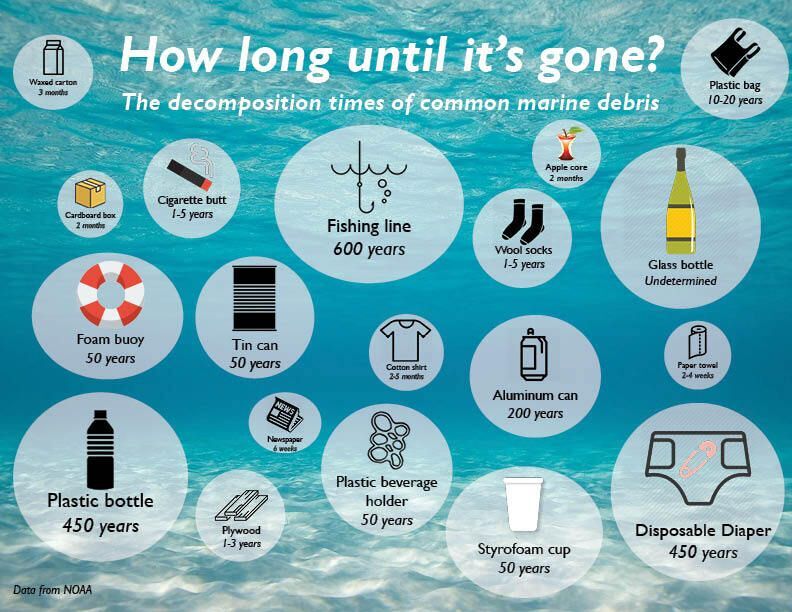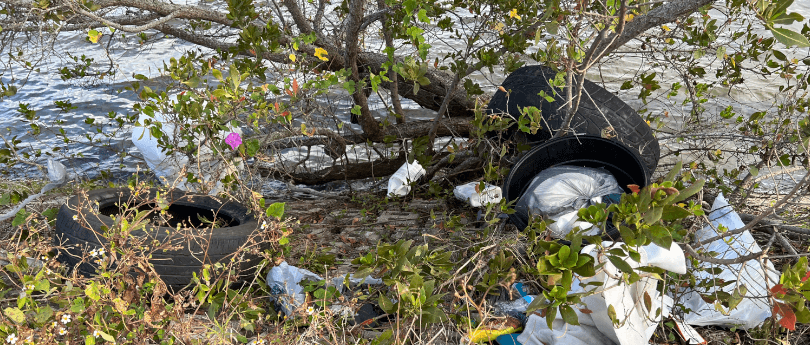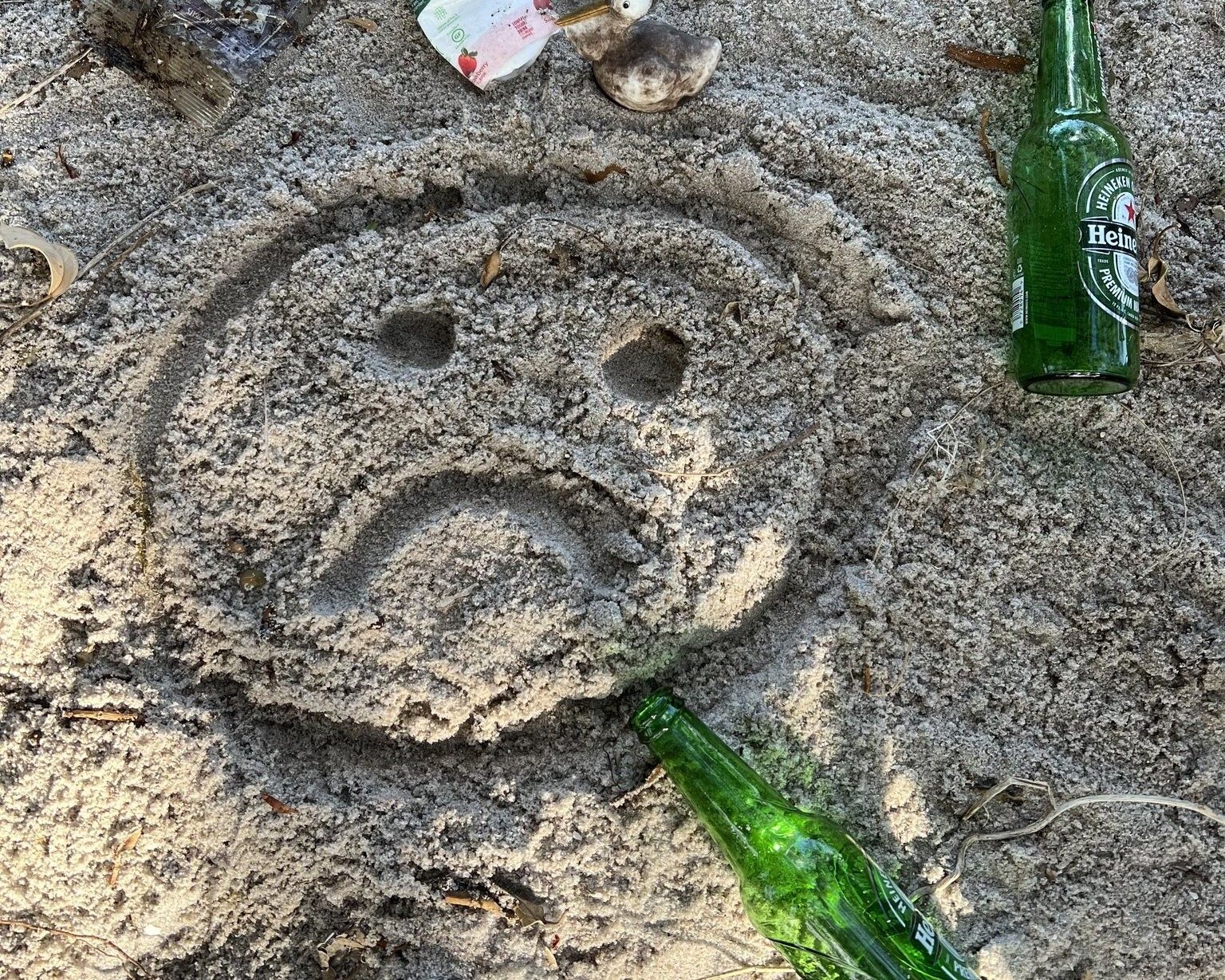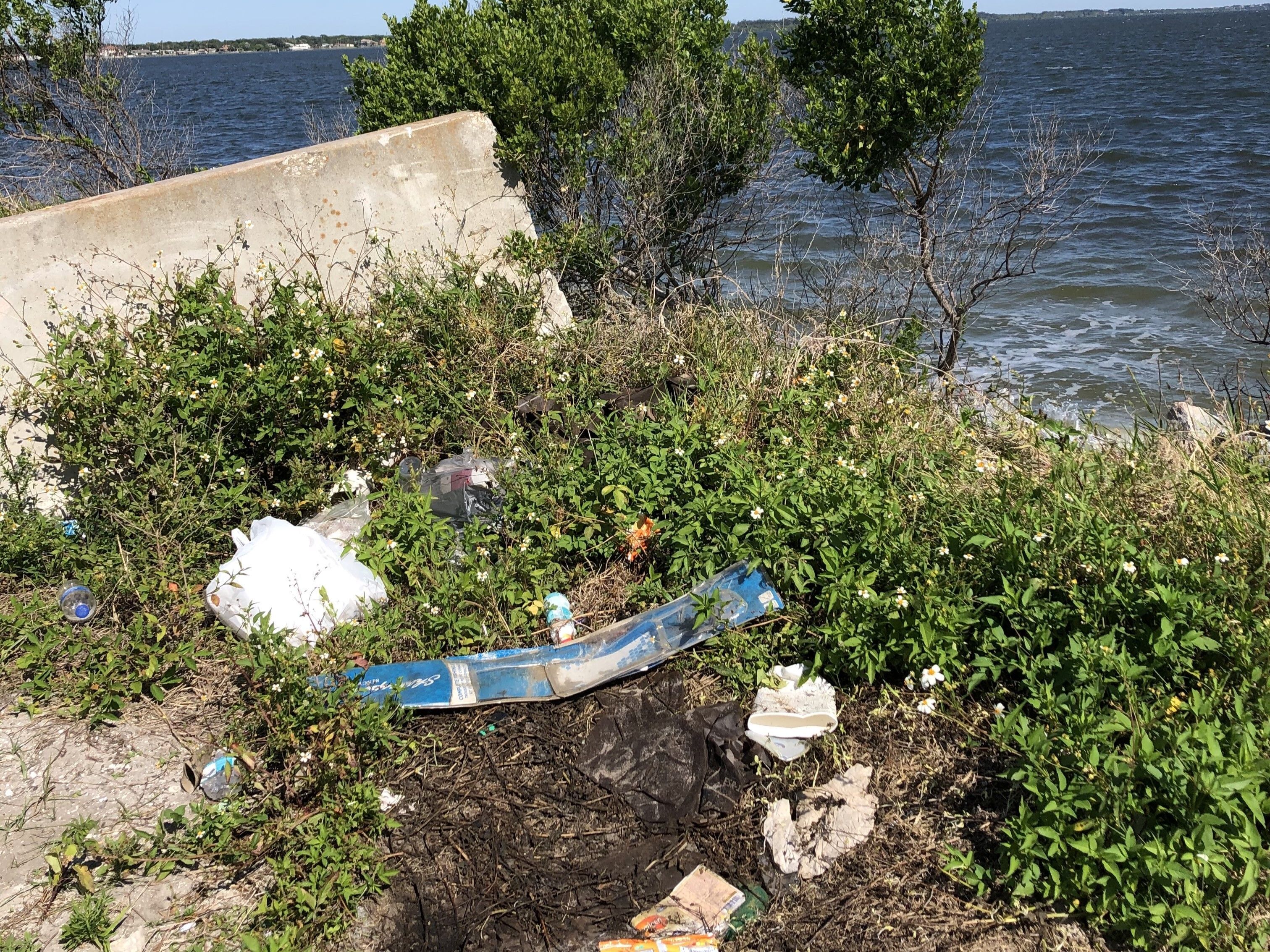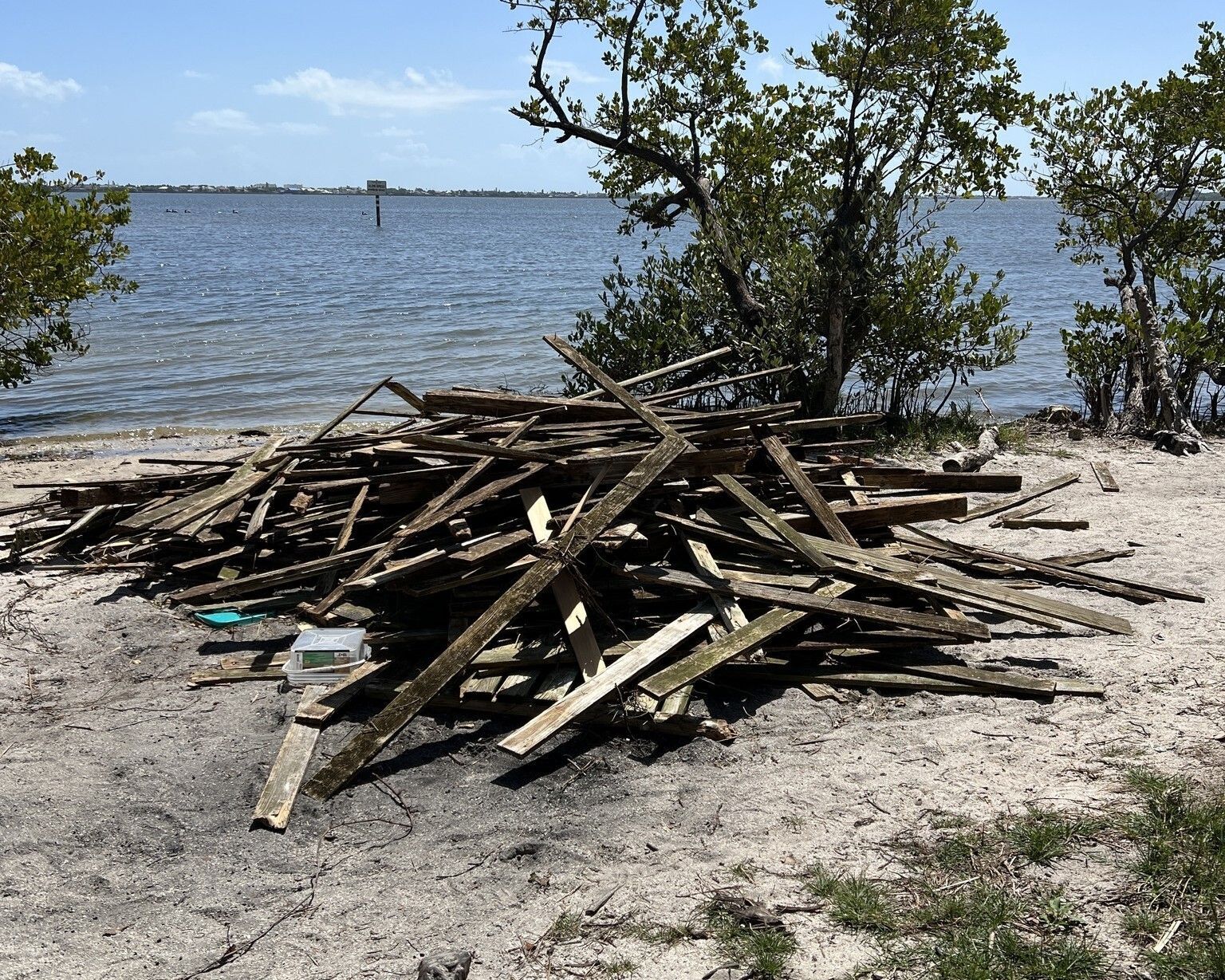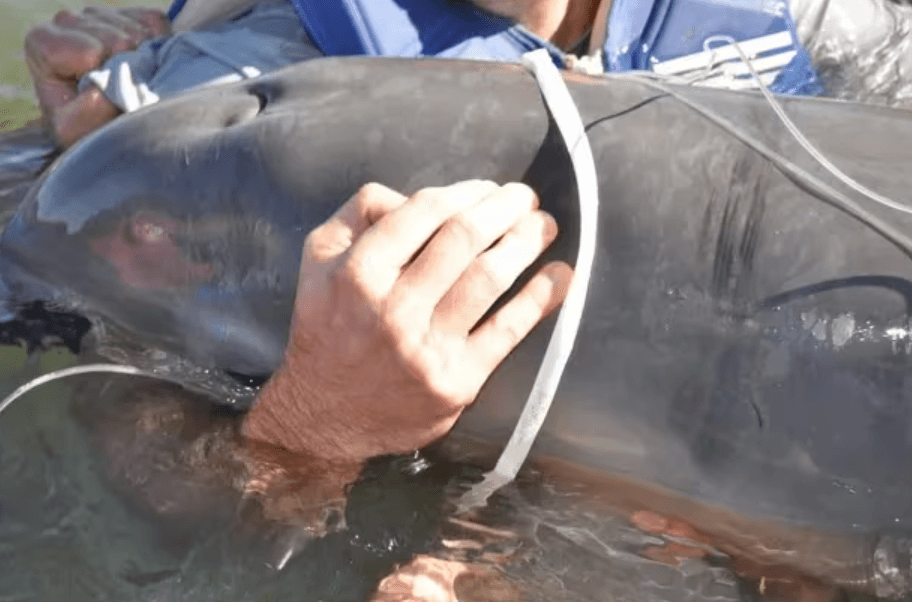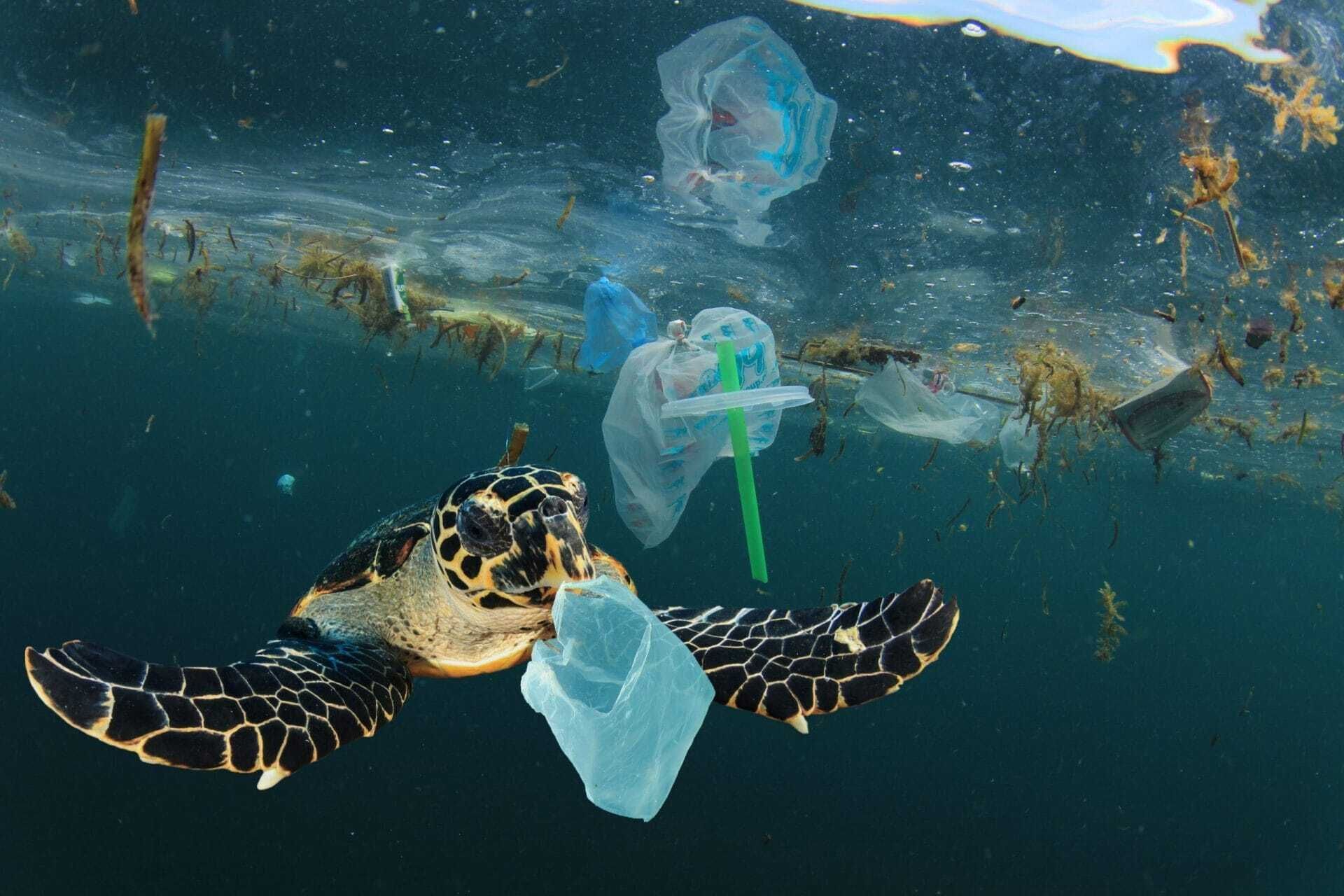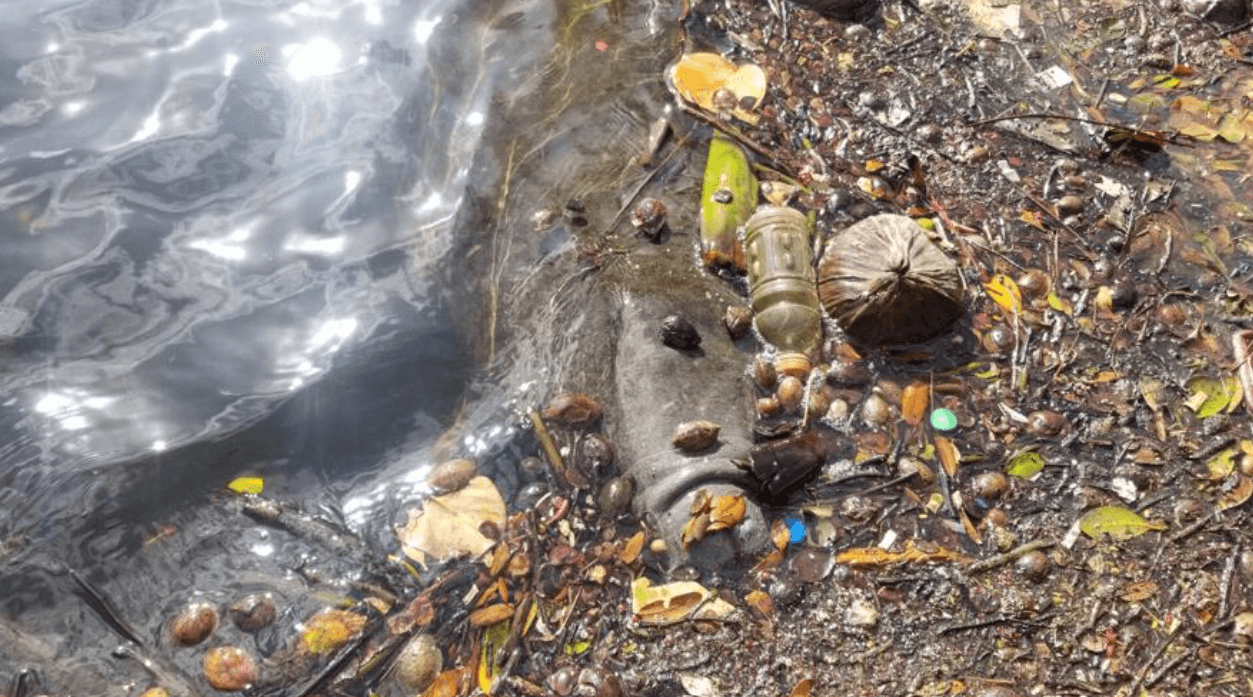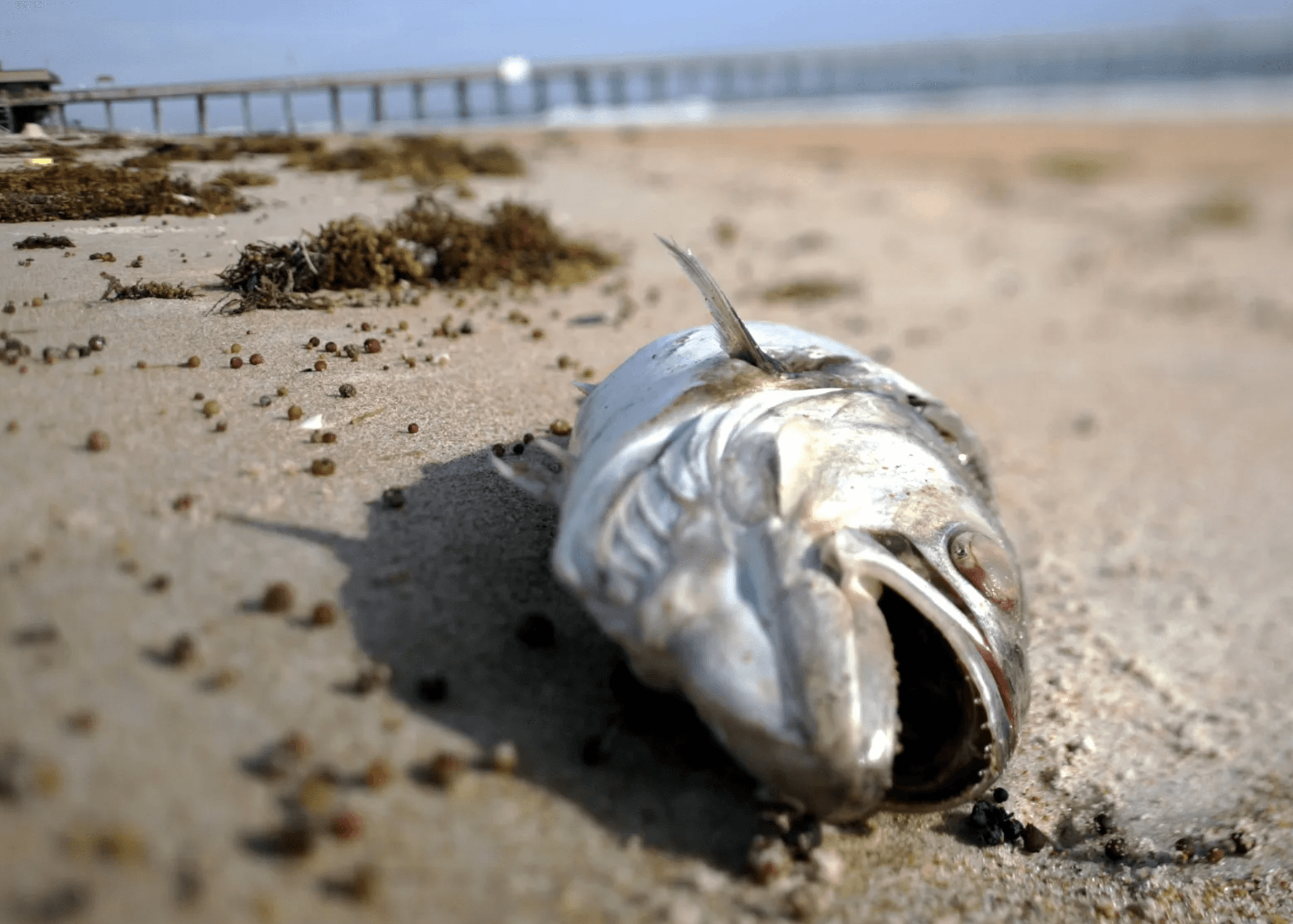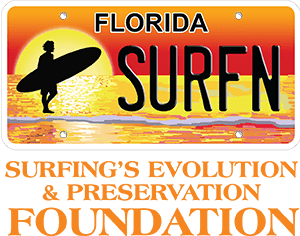WHY IS TRASH SO BAD FOR THE WATER?
You might think that some trash isn’t so bad for the water… but take a look at this graphic below. It’s staggering how long it takes our household items to decompose! In the meantime, consider all of the damage it’s doing to the plant and animal life in and around the water
WHERE DOES THE TRASH COME FROM?
How does so much trash get into the water? Is it horrible people doing horrible things? Not necessarily! The source of the trash can be broken down into three categories… Careless, Deliberate and Accidental. Does YOUR BEHAVIOR fall into one of these categories?
-
Trash left behind by partygoers is a common sight, with bottles, food containers, and decorations littering the area. Fishermen often... Read More.
-
Accidental trash blowing out of vehicles onto roads or boats often ends up in rivers, wreaking havoc on...Read More.
-
Dumping trash by the river is incredibly harmful, polluting the water and endangering aquatic life. This deliberate act ...Read More.
What are the dangers of having trash in the water?
Trash in our rivers isn’t just an eyesore—it’s a ticking time bomb for our ecosystems. When litter enters waterways, it can poison wildlife, choke plants, and introduce toxic chemicals that ripple through the food chain. Protecting our rivers means safeguarding our health, our environment, and the natural beauty that we all cherish.
-
Trash left by or in a river can easily entangle animals, leading to severe injury or death. Discarded fishing lines... Read more...
-
Animals can suffer severe health issues when they ingest trash, as it can block their digestive systems and lead to starvation. For example, turtles ... Read more...
-
Habitat Destruction
Human trash, such as plastic bottles, cans, and other debris, can accumulate in the waterways and along their banks, disrupting ... Read more...
-
Human trash in rivers can significantly reduce the aesthetic appeal of waterfront properties, leading to a decrease in house values...Read more...
-
Human trash in the waterways often necessitates costly cleanup efforts, which are typically funded by local taxes... Read more...
